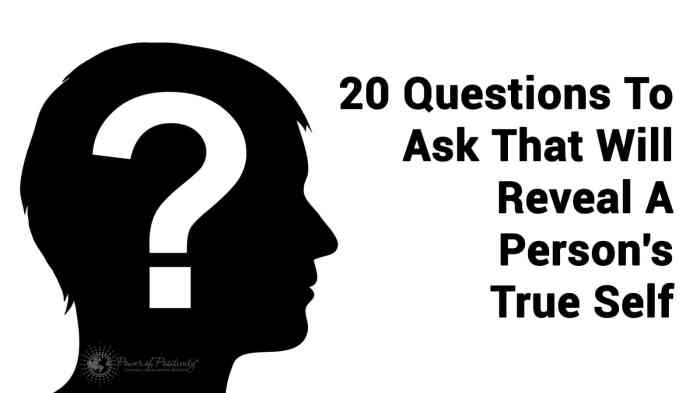Embark on an intriguing journey with the deny one’s true self crossword puzzle. This enigmatic game challenges us to confront the complexities of self-denial and its profound implications. Join us as we delve into the reasons behind this fascinating phenomenon and explore the transformative steps towards embracing our authentic selves.
The intricate tapestry of self-denial weaves through the lives of countless individuals, shaping their choices and destinies. From the shadows of societal expectations to the depths of personal insecurities, we uncover the motivations that drive us to conceal our true nature.
By examining real-life examples, we witness the devastating consequences of denying our authentic selves, highlighting the urgent need for self-acceptance.
Introduction: Deny One’s True Self Crossword

Denying one’s true self is a common phenomenon that occurs when an individual suppresses or conceals their authentic identity and desires in order to conform to societal expectations or to avoid negative consequences. This can manifest in various ways, including suppressing emotions, beliefs, or behaviors that do not align with societal norms or personal expectations.
If you’re stuck on a deny one’s true self crossword clue, don’t fret! Check out the bill nye magnetism answer key for some helpful hints. Once you’ve solved that puzzle, come back to the deny one’s true self crossword and see if you can fill in the rest of the grid.
There are several reasons why people might deny their true self. These reasons can be both internal and external, and may include:
Internal Factors
- Fear of judgment or rejection:Individuals may suppress their true selves to avoid criticism or disapproval from others.
- Internalized shame or guilt:People may deny their true selves if they believe that their authentic desires or beliefs are morally wrong or shameful.
- Low self-esteem:Individuals with low self-esteem may doubt their own worthiness and suppress their true selves to fit in or gain acceptance.
External Factors
- Societal pressures:Cultural norms and societal expectations can create pressure to conform and suppress individuality.
- Family or peer influence:Family members or peers may exert pressure to behave or think in a certain way, leading individuals to deny their true selves.
- Traumatic experiences:Traumatic experiences can lead individuals to dissociate from their true selves as a coping mechanism.
Examples of Denying One’s True Self

Denying one’s true self can take many forms. Some people may suppress their true feelings or desires, while others may adopt a false identity to fit in or avoid conflict. No matter the form it takes, denying one’s true self can have serious consequences.
Examples of People Who Have Denied Their True Self
- Caitlyn Jenner:Formerly known as Bruce Jenner, Caitlyn came out as transgender in 2015. She had spent years living as a man, but she always felt like she was living a lie. Coming out was a difficult decision, but it was the right one for her.
- Elliot Page:Formerly known as Ellen Page, Elliot came out as transgender in 2020. He had spent years struggling with his gender identity, but he finally found the courage to live his truth.
- Laverne Cox:Laverne is an actress and transgender activist. She has been open about her struggles with gender identity and the discrimination she has faced. She is a role model for many transgender people and an advocate for transgender rights.
Consequences of Denying One’s True Self
Denying one’s true self can have a number of negative consequences, including:
- Depression and anxiety:People who deny their true self are more likely to experience depression and anxiety. This is because they are constantly fighting against who they really are.
- Substance abuse:People who deny their true self may turn to drugs or alcohol to cope with their feelings. This can lead to addiction and other health problems.
li> Relationship problems:People who deny their true self may have difficulty forming and maintaining relationships. This is because they are not being honest with themselves or others about who they are.
Denying one’s true self is never easy, but it is important to remember that you are not alone. There are people who care about you and want to help you be yourself. If you are struggling with your gender identity, there are resources available to help you.
You can find support groups, therapists, and other resources online or in your community.
How to Overcome Denying One’s True Self

Overcoming the denial of one’s true self is a challenging but rewarding journey. It requires self-reflection, honesty, and a willingness to embrace change. Here are some steps that can help you on this path:
Identify Your True Self
Start by exploring your values, beliefs, and passions. Ask yourself what truly makes you happy and fulfilled. Pay attention to your instincts and gut feelings. Engage in activities that align with your interests and bring you joy. This process of self-discovery will help you gain a clearer understanding of who you are at your core.
Acknowledge Your Denials, Deny one’s true self crossword
Once you have a better sense of your true self, it’s important to acknowledge the ways in which you have been denying it. This may involve recognizing the masks you wear, the roles you play, or the expectations you have been trying to meet.
Be honest with yourself about the reasons why you have been denying your true self. Understanding these reasons can help you develop strategies for overcoming them.
Challenge Your Beliefs
Many of the beliefs that contribute to denying our true self are deeply ingrained. Challenge these beliefs by questioning their validity and seeking evidence to support or refute them. Consider alternative perspectives and surround yourself with people who encourage you to be authentic.
Embrace Imperfection
It’s important to remember that everyone has flaws and imperfections. Accepting and embracing these imperfections can help you feel more comfortable with being yourself. Focus on your strengths and the qualities that make you unique. Let go of the need to be perfect and allow yourself to grow and evolve.
Practice Self-Compassion
Be kind and compassionate towards yourself. Treat yourself with the same understanding and acceptance that you would offer to a friend. Forgive yourself for past mistakes and focus on the present moment. Self-compassion creates a safe space for you to explore your true self without judgment or fear.
Seek Support
Overcoming denying one’s true self can be a difficult journey. Don’t hesitate to seek support from friends, family, or a therapist. Sharing your experiences and struggles with others can provide validation and encouragement. Support groups and online communities can also be valuable resources.
Examples of Overcoming Denial
Throughout history, countless individuals have overcome the denial of their true selves and lived authentic lives. Here are a few examples:
- Nelson Mandela: Imprisoned for his anti-apartheid activism, Mandela spent 27 years in prison. Despite the hardships he faced, he remained true to his beliefs and emerged as a symbol of hope and reconciliation.
- Malala Yousafzai: Shot by the Taliban for advocating for girls’ education, Malala refused to be silenced. She became a global activist for the right to education and continues to inspire others to stand up for what they believe in.
- Oprah Winfrey: Overcoming a childhood marked by poverty and abuse, Oprah became one of the most influential women in the world. She used her platform to empower others and share her journey of self-discovery.
These individuals demonstrate that it is possible to overcome the denial of one’s true self and live a life of authenticity and purpose. By following the steps Artikeld above, you can embark on your own journey of self-discovery and embrace your true self.
Conclusion

In summary, denying one’s true self can have significant negative consequences for mental and emotional well-being. It is essential to recognize the signs of self-denial and take steps to overcome them. This involves acknowledging and accepting your true self, setting boundaries, and surrounding yourself with supportive people.
Advice for Readers
If you are struggling with denying your true self, here are some tips:
- Spend time alone:Reflect on your thoughts, feelings, and values to gain a better understanding of who you truly are.
- Journal your experiences:Writing can help you process your emotions and identify patterns in your behavior.
- Seek professional help:A therapist can provide support, guidance, and coping mechanisms.
- Surround yourself with positive people:Surround yourself with people who accept and support you for who you are.
- Practice self-care:Engage in activities that bring you joy and fulfillment, such as hobbies, spending time in nature, or practicing mindfulness.
Remember, denying your true self is a common struggle, but it is one that can be overcome. By embracing who you are and living authentically, you can unlock your full potential and live a more fulfilling life.
FAQ Summary
What are the common reasons for denying one’s true self?
Fear of judgment, societal expectations, low self-esteem, and internalized negative beliefs are among the common reasons.
How can I overcome the tendency to deny my true self?
Practice self-reflection, challenge negative thoughts, engage in activities that bring joy, and surround yourself with supportive individuals.

